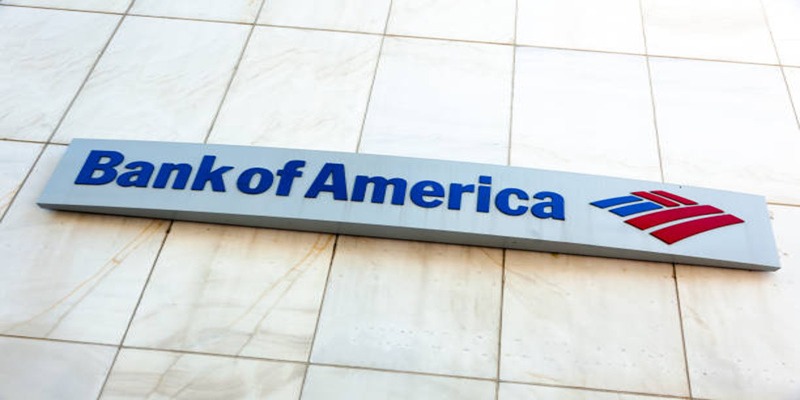In the world of finance, a clearinghouse plays a pivotal role, often working behind the scenes to keep the wheels of the financial markets turning smoothly. It acts as a mediator between buyers and sellers, ensuring that trades are settled efficiently and that risks are managed effectively.

This article explores what a clearinghouse does, why it's important, and how it operates within the financial markets in 2024.
What is a Clearinghouse?
A clearinghouse is a financial institution that helps facilitate the trading process by ensuring that transactions between buyers and sellers are completed smoothly. Its main job is to handle the clearing and settlement of trades, which involves confirming the details of trades, managing the transfer of funds, and ensuring that both parties fulfill their contractual obligations. In essence, a clearinghouse acts as a middleman, stepping in to guarantee that trades are settled even if one party defaults.
Types of Clearinghouses
Clearinghouses come in various forms, each tailored to specific financial markets and products. The most prominent types include:
Central Clearinghouses: These are the backbone of modern financial markets, serving multiple exchanges and trading platforms. They centralize the clearing and settlement of trades across different asset classes, including equities, futures, and options. By consolidating clearing functions, they enhance efficiency and reduce systemic risk.
Specialized Clearinghouses: These institutions focus on niche markets or products, such as over-the-counter (OTC) derivatives or foreign exchange transactions. Their specialization allows them to develop tailored risk management practices and address specific market needs.
Self-Clearing Firms: Some financial institutions operate as their own clearinghouses, managing trade settlements and risk internally. This model provides firms with greater control over their clearing processes but requires robust internal systems to manage the associated risks.
How Does a Clearinghouse Work?
When a trade is executed in the financial markets, it needs to be confirmed and settled. This process involves verifying the trade details and transferring funds from the buyer to the seller. The clearinghouse handles these tasks by acting as an intermediary. Here's a simplified look at how it works:
Trade Confirmation
Once a trade is executed, the clearinghouse confirms the details with both parties. This includes checking that the trade's terms are accurate and that both parties agree to them.
Risk Management

To manage risk, the clearinghouse requires traders to deposit collateral, known as margin, which serves as a financial cushion in case of default. This helps ensure that even if one party fails to meet their obligations, the trade can still be completed.
Settlement
After confirmation and risk management, the clearinghouse oversees the actual transfer of funds and securities. It ensures that the buyer pays for the securities and the seller delivers them, completing the transaction.
Default Management
If a party fails to fulfill their obligations, the clearinghouse steps in to handle the default. It uses the margin funds to cover the shortfall and ensures that the transaction is still completed.
The Importance of a Clearinghouse
Clearinghouses are integral to the functioning of financial markets, acting as essential intermediaries that facilitate the smooth execution and settlement of trades. Their importance extends beyond mere transactional support; they play a vital role in maintaining market stability, reducing risk, and ensuring efficiency. Heres a closer look at why clearinghouses are so crucial:
Reducing Counterparty Risk
One of the primary functions of a clearinghouse is to reduce counterparty risk. Counterparty risk is the possibility that one party in a transaction may default on their obligations. By acting as an intermediary, a clearinghouse guarantees that both sides of a trade are fulfilled, even if one party fails to meet their commitments.
It does this by requiring participants to post collateral, known as margin, which acts as a financial buffer. This system ensures that the clearinghouse can cover any shortfalls and complete the trade, thereby mitigating the risk of default impacting the other party.
Ensuring Market Integrity
Clearinghouses help maintain the integrity of financial markets by ensuring that trades are settled accurately and timely. They verify the details of each trade, handle the transfer of funds and securities, and ensure that all contractual obligations are met. This role is crucial for preventing disputes and ensuring that the market operates smoothly. By providing a standardized process for clearing and settlement, clearinghouses help uphold the reliability and trustworthiness of financial markets.
Increasing Market Efficiency
Efficiency is a key benefit provided by clearinghouses. By centralizing the clearing and settlement process, clearinghouses streamline the execution of trades, reducing the time and cost involved. This centralization helps lower transaction costs for market participants and enhances overall market liquidity. Efficient clearing processes also contribute to faster and more accurate settlements, which is essential for maintaining a fluid and responsive market environment.
The Role of Clearinghouses in Different Financial Markets
Clearinghouses are involved in various financial markets, each with its own set of requirements and practices:
Equity Markets

In stock markets, clearinghouses ensure that trades are settled accurately and efficiently. They manage the transfer of shares and cash between buyers and sellers.
Futures and Options Markets
For derivatives like futures and options, clearinghouses handle the settlement of contracts and manage the associated risks. They also provide a platform for margin trading and default management.
Over-the-Counter (OTC) Markets
OTC markets, where financial products are traded directly between parties, use clearinghouses to handle the clearing and settlement of these trades. This helps reduce counterparty risk and increase market stability.
Foreign Exchange Markets
In the forex market, clearinghouses facilitate the settlement of currency trades and manage the associated risks. They ensure that transactions are completed smoothly and efficiently.
Conclusion
Clearinghouses are a vital component of the financial markets, providing essential services that help ensure trades are completed smoothly and risks are managed effectively. By acting as intermediaries between buyers and sellers, they reduce counterparty risk, enhance market efficiency, and contribute to overall market stability. As financial markets continue to evolve, clearinghouses will play an ongoing role in adapting to new challenges and innovations, helping to maintain the integrity and functionality of the global financial system.











